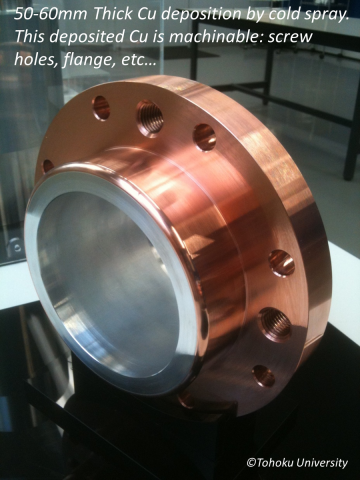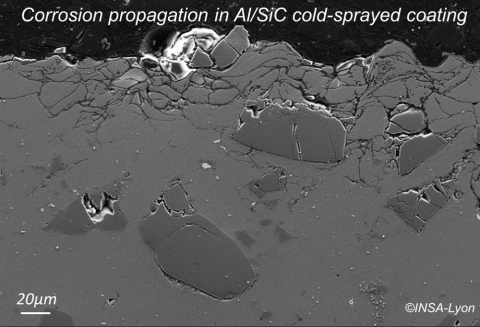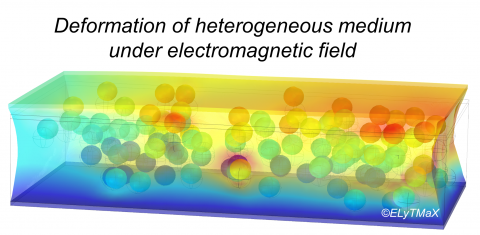Research

The research conducted at ELyTMaX laboratory (CNRS - Université de Lyon - Tohoku University) focuses on the behavior of materials -and the systems they form with other structures- under extreme and complex conditions (pressure, temperature, radiation, or highly corrosive environments).

Two areas of research are mainly developed:
- Analysis of the material evolutions in industrial environment, for example in energy production or transportation. The research is based on both experiments and modeling, within a context of extremely rapid deformation, aggressive medium, high temperatures, etc., in order to develop strategies for the conditioning, protection, and healing of surfaces used in industry. For example, a strong activity is devoted to cold-spray technique for depositing different types of materials (metals, ceramics, and now polymers), thus developing innovative application fields for materials hardly processed otherwise, like ultra-high molecular weight polymers. More generally speaking, a bottom-up approach is applied to the analysis of physical-chemical mechanism is real situations encountered in industries.


- The study of microsystems used for the conversion of energy, and their resistance to pressure and electric fields. Researchers study new materials and energy conversion systems, using both multi-scale (molecular, macroscopic, etc.) and thermodynamic approaches, in an effort to understand, for example, how the nano-architecture of materials is responsible for the macroscopic effects observed. The study and modeling of physical mechanisms makes it possible to simulate how the microsystems operate, and optimize them prior to their manufacturing. The goal is to design new numerical tools able to propose optimized systems based on structured materials, for given specifications.

A third activity related to ageing of materials used to biomedical applications should start in the next future, for example bone substitutes and prosthesis subjected to complex dynamic stress solicitations and physical-chemical environments.
Each of these research areas aims to elucidate the behavior of materials subjected to complex stress beginning with their production and implementation, in order to assess their life span. The projects under development rely in particular on the complementarity between French and Japanese researchers, which differs according to the areas of research. For example, researchers in Lyon have strong expertise in the electrochemical approach of the corrosion study, while Tohoku University excels in the analysis of corrosion under extreme conditions. Thus this cooperation makes it possible to envisage a complete approach of materials science, based on both the development of experimental techniques and the modeling of the physical and physical-chemical mechanisms in play.

